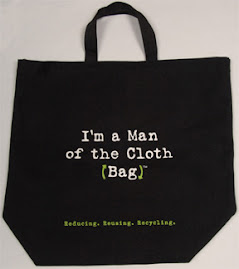Green AMPlified, a national survey released by AMP Agency, an Alloy Media + Marketing company, revealed that almost all Americans—a whopping 90 percent—believe that acting in an environmentally responsible way is important.
The survey also revealed that 53 percent of consumers will consider a company’s social and environmental activities when making a purchasing decision and will reward companies that are committed to the green cause—57 percent say they’ll trust a green company and 60 percent will purchase its products.
That’s the great news . . . but there’s some not-so-great news, too.
The same 90 percent that believe going green is important feel that the responsibility is in the hands of corporations and not in their own hands. And while they are increasingly implementing eco-friendly evaluations into their product purchasing decisions, they will allow only a minimal sacrifice in terms of changing their own lifestyle.
You’ve got to be kidding me!
Looking to Uncle Sam, or the president of McDonald’s, to make the world green is foolish at best. At worst, it’s deadly. Think about it: We’re all encouraged to go green because being anything else typically includes serious health risks. Drinking from plastic bottles that have leached harmful chemicals. Sleeping on a mattress that’s releasing toxic fumes. Draping our bodies in clothing drenched in pesticides. Eating hormone-filled meats. These are just four examples of countless risks.
Change Needs to Start at Home
The typical American lifestyle needs to change . . . desperately . . . and quick.
You might think that we’ve always lived this way, but we haven’t. Current generations are expected to have a life span that’s shorter than that of their parents. It’s time to get outraged, and to use that passion to start making green changes, no matter how uncomfortable.
Here are some of the things Mark and I do (and don’t do):
- I’m a full-time writer and I work out of my house; Mark drives our hybrid a mere 3.2 miles to his job each day.
- We eat local, in-season, organic food as often as possible (which, when you look for it, is frequently possible).
- We limit our use of packaging.
- We compost.
- We recycle everything we can.
- When we do end up with a plastic bag—which is rare—we wash it and dry it on a rack made for just that purpose.
- We don’t water our lawn or use any chemicals (we think the only place you shouldn’t be green is your lawn if it takes chemicals and precious water to get it that way!).
- We only use no-VOC paint.
- We bought energy-efficient light bulbs . . . and curtains.
- We turn off every light when leaving a room (even for just a few minutes).
- We look at clothing labels and buy organic or sustainable products.
- We added a green mattress topper, eco pillows, and organic bedding in our bedroom.
- We always try to buy products made in the United States (even if they cost more).
- We're up to nearly 20 plants in our house to help clean the air.
This list is far from complete, but it lets you know that we walk the green walk. Some of it isn't fun but, get this, we're happy. Really, really happy.
Make the Change at Work, Too
Just over 10 years ago, I implemented a recycling program in my first job out of college. I did all the sorting and recycling myself (which included visiting a recycling center) on my own time, and my own dime. “I wish I could do that,” an older colleague said to me one day. “But I just don’t enjoy recycling.” At that exact moment, I was carrying a mound of soda cans—and I don’t even drink soda!—trying to make sure none of them fell, spilled on me, or got me sticky. “You think I enjoy this?” I asked.
My point is to taking your same green passion from your home to your office, making green changes and encouraging co-workers and management to do the same.
Back to the Green AMPlified survey, I’m beyond thrilled that going green is important to 90 percent of Americans. Now it’s our job to make sure we get those same people to realize it’s just as important to go green at home.
Question of the blog: How much are you willing to sacrifice in your life to go green?




No comments:
Post a Comment